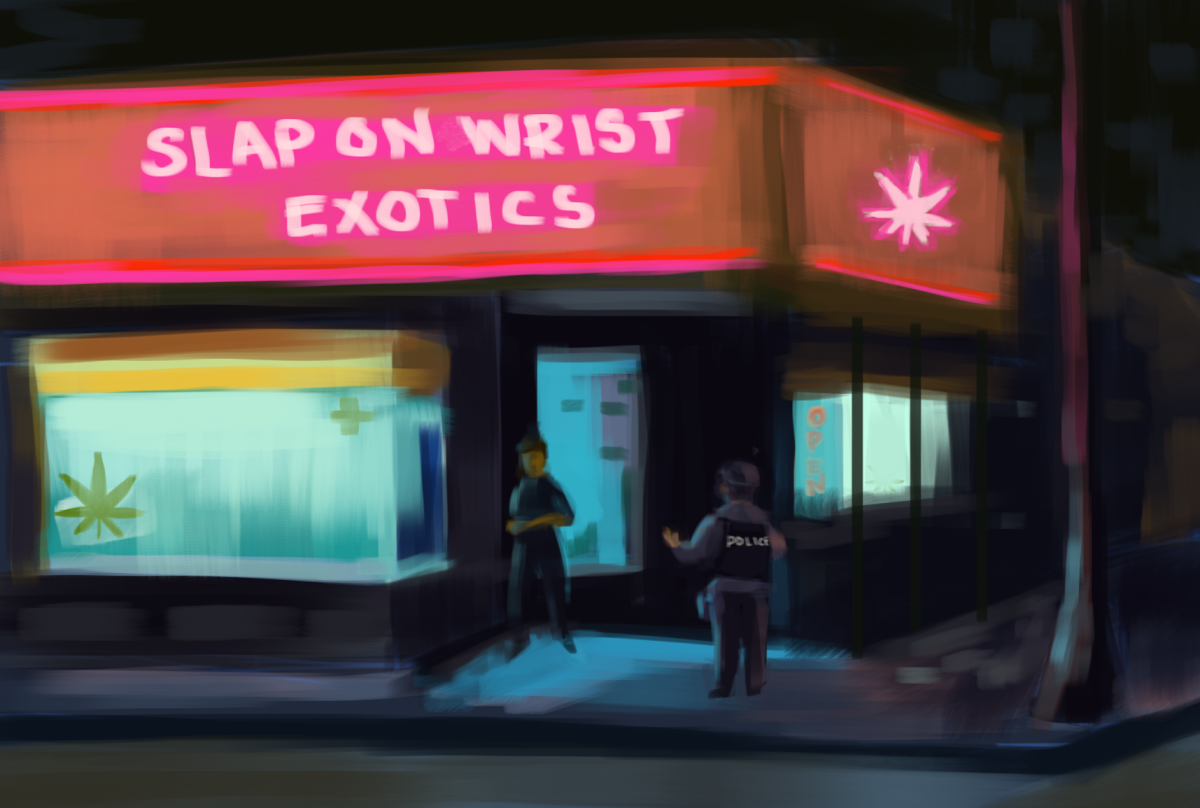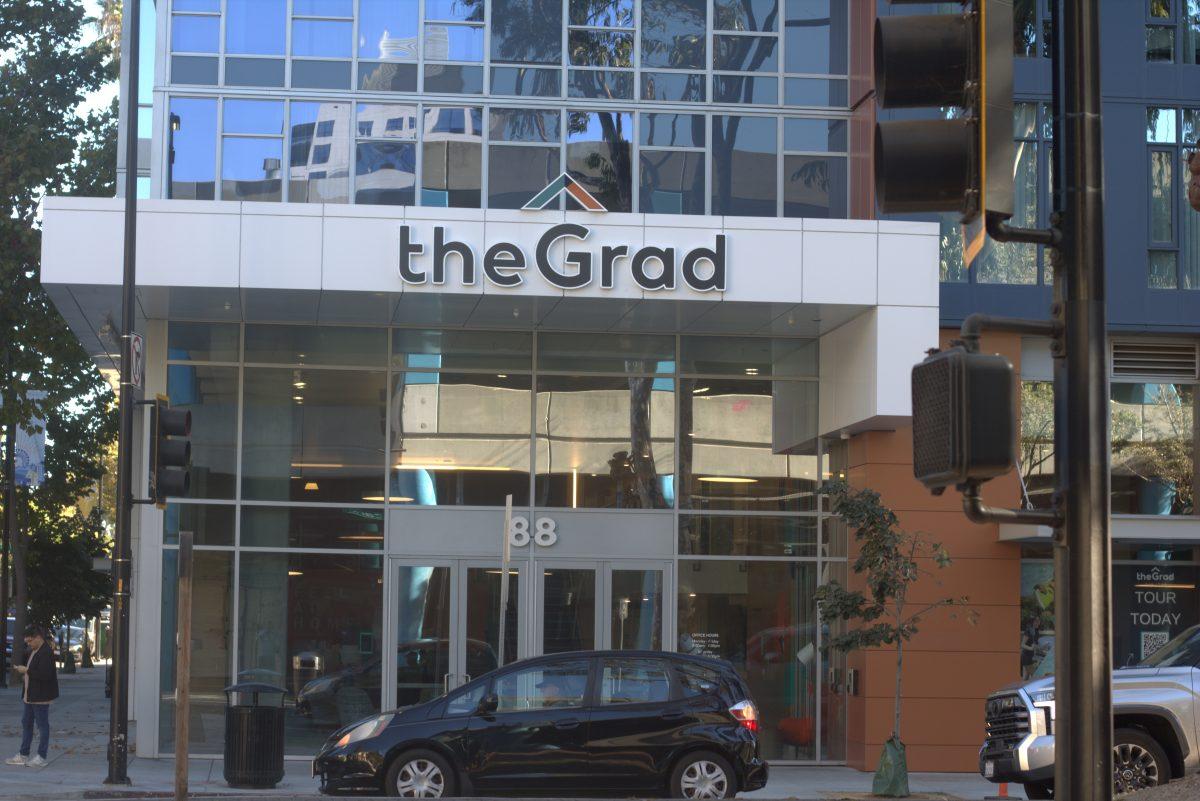If you Google “top five best cannabis brands in California” you’ll more than likely find brands including Kiva Confections, Raw Garden and Alien Labs, which all share a common trait: They are owned by white people.
The cannabis industry needs to see communities of color represented more in the business owner demographics, especially since communities of color were the most affected by the war on drugs and are currently being excluded from the colloquially termed “Green Rush.”
A play off of the late 18th century California Gold Rush, those taking part in the booming legal cannabis market often call it the “Green Rush,” suggesting that the industry is making people extremely wealthy, according to a Nov. 17, 2020 Yahoo article.
Even though recreational cannabis was legalized in California in November 2016 and cannabis-related arrests are on the decline in California, Black and Latinx people are still disproportionately arrested at higher rates across the country in both states where cannabis has been legalized and states where it remains illegal, according to an April 20, 2020 ACLU report.
Black people are almost three times as likely to be arrested for cannabis possession than white people nationally, according to the same report which used 2018 census data.
Being arrested often leaves Black and Latinx people with a felony – one more hurdle to overcome if they want to start a cannabis business.
In addition to all the historical, systemic ways people of color were financially held back, including redlining practices, it’s also difficult to do anything with a felony on your record.
Redlining, which was practiced from the 1930s to the1960s, was a financial Jim Crow Law that separated neighborhoods by “levels of risk” using color coded maps, according to the Ferris State University website.
Neighborhoods in the red section were typically populated by Black people and would be less likely to receive loans from banks, leading to the generational wealth gap that we see today, according to the same website.
Having a felony record puts aspiring small business owners at a greater disadvantage because banks will rarely accept loan applications from felons, according to a December 15, 2020 NerdWallet article.
Opening up a brick-and-mortar cannabis store is extremely expensive and starting a dispensary can cost anywhere from $250,000 to $750,000, according to a Sept. 25, 2018 article published by The Cannabis Industry.
The only way to create more diversity in the industry is if business leaders start advocating for better record expungement practices for individuals with marijuana-related infractions.
Currently, record expungement practices for cannabis-related offenses are strict and verbiage for records to be expunged have to fall within a set of specific guidelines.
For example, if you are charged with a misdemeanor for having drug paraphernalia including a glass bong, but no weed, your record will just indicate drug paraphernalia, so you are not able to get it expunged, according to an April 17, 2020 Insider article.
More than 34,000 Californians have yet to be pardoned for marijuana-related offenses, according to a Jan. 13 investigation by the Los Angeles Times.
This is ridiculous, especially considering that last year California garnered $3.4 billion in tax revenue from cannabis companies, according to the Marijuana Policy Project.
The Marijuana Policy Project is an organization that advocates for the legalization of cannabis federally.
Clearly a budget is not the issue for the slow expungement process.
The lack of action by the California judiciary department isn’t surprising because these felonies mostly affect people of color.
The history of how cannabis, which is the proper botanical name for the plant, got its nickname, “marijuana,” is an anecdotal way to frame how history can affect the present day.
In attempts to stoke anti-immigrant fears in U.S. citizens during the early 19th century, Harry Anslinger, director of the Federal Bureau of Narcotics from 1930 to 1962, began warning Americans that immigrants were bringing in a drug known as “Mariguana,” according to Dec.14, 2013 Al-Jazeera article.
He used the word marijuana specifically because it sounded “foreign” and was therefore easier to connect to Mexican immigrants, according to the same article.
It’s easy to continue buying from your favorite cannabis brands, but consider buying from smaller brands owned by people of color.
Some Black-owned brands include Oakland Extracts, which can be purchased from Caliva on South 7th Street in San Jose.
Or, if you’re sensitive to THC, check out the Latina-owned cannabis salve and bath salts company, Ojo De La Sol, to celebrate with a peaceful bath.
Its products are a bit more difficult to come by since it’s a smaller company but can be purchased from the Cookies store in Hayward.
Cannabis was once a counterculture symbol, but now it’s sold out and is no longer for the people because of historic systemic inequities and modern day carelessness.
Something needs to be done so that people of color are represented in the cannabis industry or if nothing else, I know we all know someone, who knows someone, who is a “small business owner” we could buy our favorite evening delight from.









































